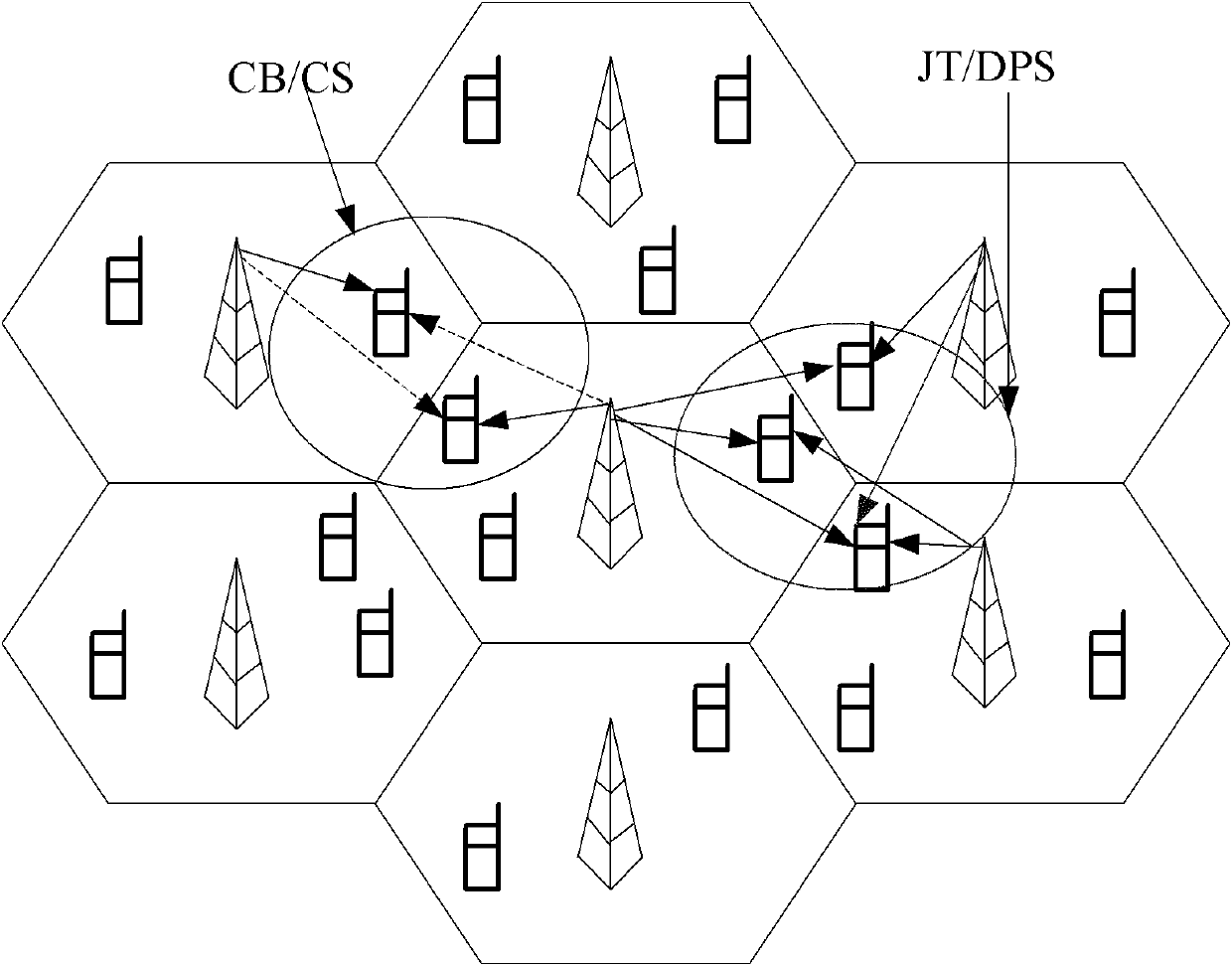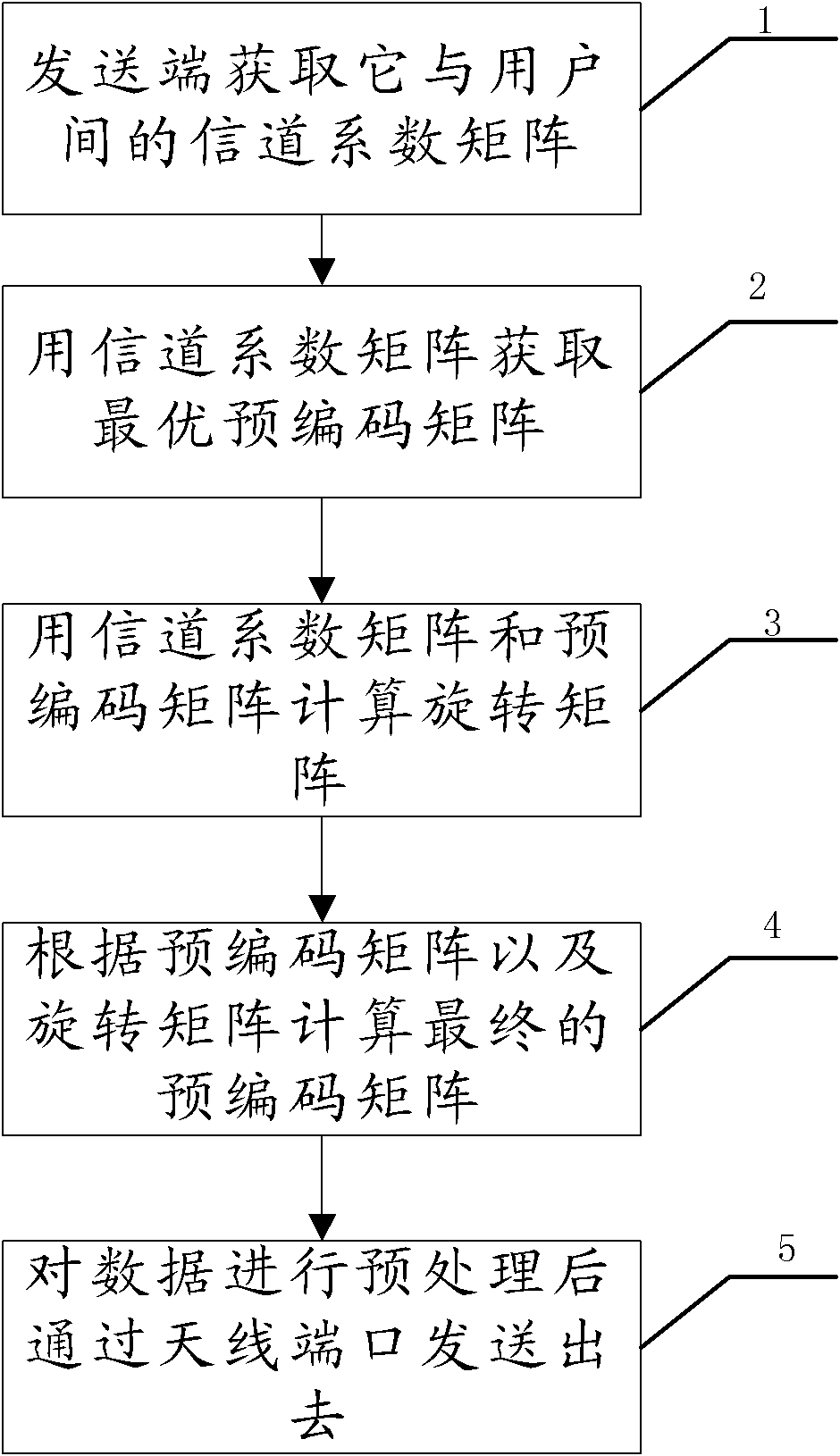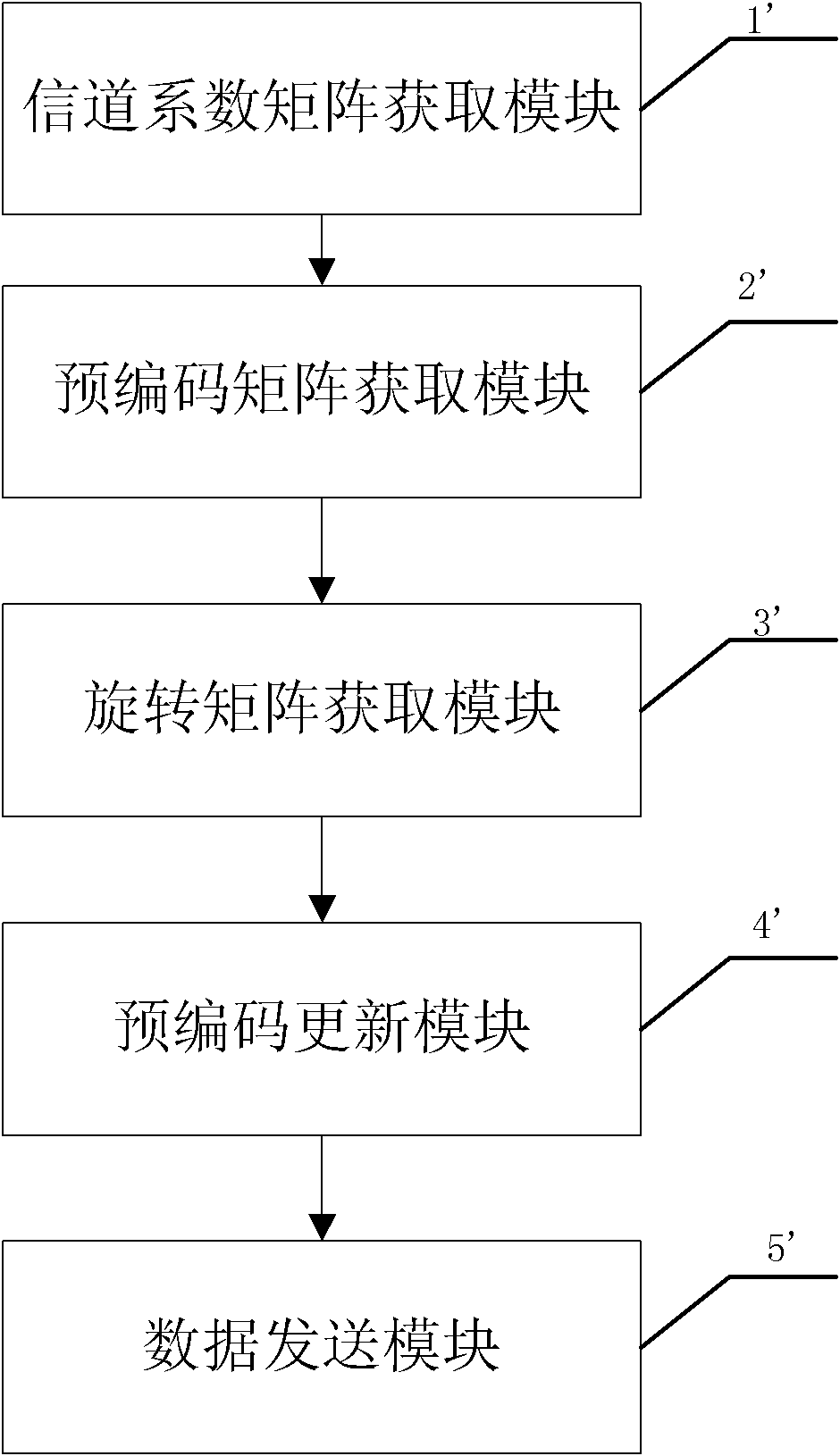Downlink signal preprocessing transmission method and device
A transmission method and preprocessing technology, applied in the field of communication, to achieve the effects of improving spectral efficiency, increasing effective coverage and reducing interference
- Summary
- Abstract
- Description
- Claims
- Application Information
AI Technical Summary
Problems solved by technology
Method used
Image
Examples
Embodiment 1
[0054] In a distributed precoding system, there are N cooperative base stations, they transmit data for K users at the same time, and the number of transmitted data streams is d k . For each user k, k=1,...,K, each coordinated base station i, i=1,...,N respectively performs the following operations to obtain the distributed precoding matrix corresponding to the user k served by it, and use the precoding matrix The encoding matrix preprocesses the sent data and then sends it out.
[0055] (1) The sender i obtains the channel coefficient matrix H between it and the user i ,in is a matrix of complex coefficients, N R Indicates the number of receiving antennas of the user, Indicates the number of transmitting antennas of the transmitting end i.
[0056] (2) The sender i uses the channel coefficient matrix H i Get the optimal precoding matrix W i ,in, is a matrix of complex coefficients, N R Indicates the number of receiving antennas of the user, d i Indicates the numb...
Embodiment 2
[0069] In a distributed precoding system, there are 2 cooperative base stations, they transmit data for K users at the same time, and the number of data streams to be transmitted is d k =2. For each user k, k=1,...,K, each coordinated base station i, i=1, 2 performs the following operations respectively to obtain the distributed precoding matrix corresponding to the user k served by it, and use the precoding matrix Preprocess the sent data and send it out.
[0070] (1) The sender i obtains the channel coefficient matrix H between it and the user i ,in is a matrix of complex coefficients, N R Indicates the number of receiving antennas of the user, Indicates the number of transmitting antennas of the transmitting end i.
[0071] (2) The sender i uses the channel coefficient matrix H i Get the optimal precoding matrix W i ,in, is a matrix of complex coefficients, N R Indicates the number of receiving antennas of the user, d i Indicates the number of data streams sent...
Embodiment 3
[0079] In a distributed precoding system, there are 2 cooperative base stations, they transmit data for K users at the same time, and the number of data streams to be transmitted is d k =2. For each user k, k=1,...,K, each coordinated base station i, i=1, 2 performs the following operations respectively to obtain the distributed precoding matrix corresponding to the user k served by it, and use the precoding matrix Preprocess the sent data and send it out.
[0080] (1) The sender i obtains the channel coefficient matrix H between it and the user i ,in is a matrix of complex coefficients, N R Indicates the number of receiving antennas of the user, Indicates the number of transmitting antennas of the transmitting end i.
[0081] (2) The sender i uses the channel coefficient matrix H i Get the optimal precoding matrix W i ,in, is a matrix of complex coefficients, N R Indicates the number of receiving antennas of the user, d i Indicates the number of data streams sent...
PUM
 Login to View More
Login to View More Abstract
Description
Claims
Application Information
 Login to View More
Login to View More - R&D
- Intellectual Property
- Life Sciences
- Materials
- Tech Scout
- Unparalleled Data Quality
- Higher Quality Content
- 60% Fewer Hallucinations
Browse by: Latest US Patents, China's latest patents, Technical Efficacy Thesaurus, Application Domain, Technology Topic, Popular Technical Reports.
© 2025 PatSnap. All rights reserved.Legal|Privacy policy|Modern Slavery Act Transparency Statement|Sitemap|About US| Contact US: help@patsnap.com



